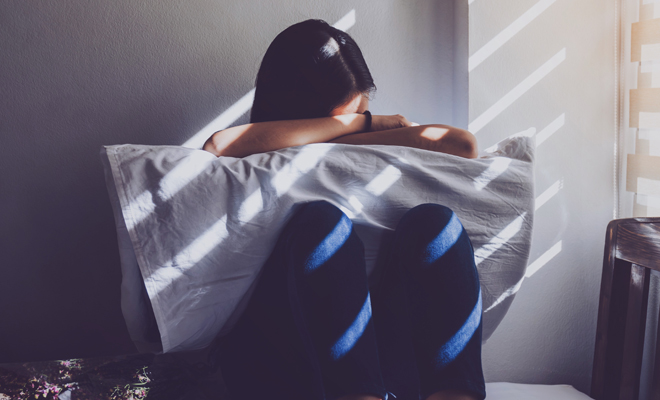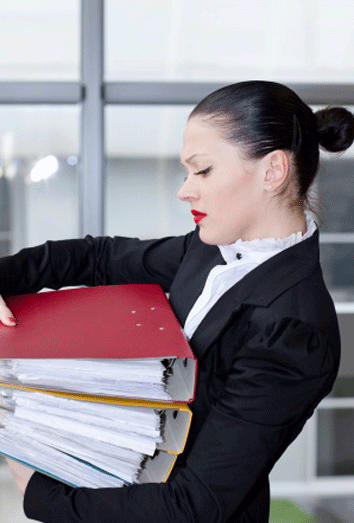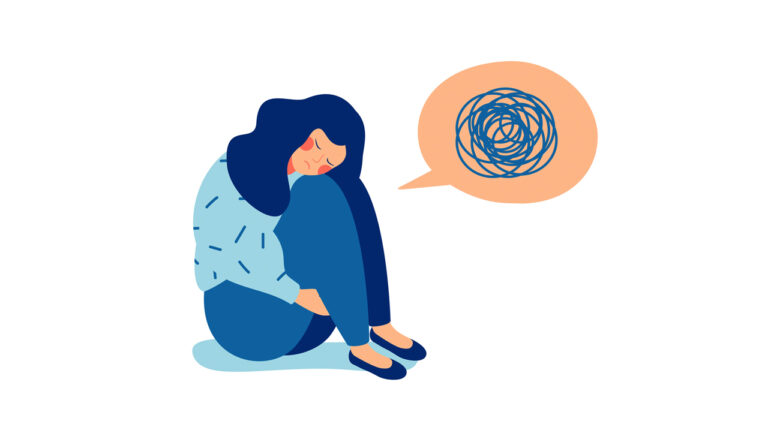Anxiety is one of the main mental health problems that affect a large part of the world population. And it seems that in recent decades anxiety levels have increased throughout the world.

This has translated into an increase in people who have been diagnosed with physical and mental health problems that are directly related to high levels of anxiety, one of the most common being headaches. How to avoid anxiety headache? We help you with some tips and specialist techniques, take note!
The relationship between anxiety and physical health
Emotions are closely related to physical health and well-being, so it is easy to understand that when the levels of anxiety experienced are very high, health is negatively affected.
However, we must stop to recognize that anxiety in itself is not bad, quite the contrary, it is a natural adaptive mechanism that allows us to activate and respond to external stimuli and thus preserve our well-being.
The bad thing happens when those anxiety levels are constantly and very high. This can happen due to pressures outside of us or because of the way in which we perceive situations.
Anxiety affects and for this reason it is difficult to diagnose in some cases. And it affects health in general with various symptoms that include:
- Discomfort at the muscular level, such as pain, cramps, tension, etc.
- Gastrointestinal problems, such as nausea, diarrhea, gas, difficulties digesting food, etc.
- Problems at the level of the cardiovascular system, such as increased blood pressure, tachycardia, etc.
- Headaches, migraines, memory problems.
- Cold sweats, dizziness and even in some cases, fainting.
This is just to mention some of the physical symptoms that can be experienced when you have high levels of anxiety.
But it is important to understand that anxiety is not the enemy here, it is just a symptom that tells us that there is something we should pay attention to and learn to manage it assertively.
Anxiety headache
When anxiety is experienced, the muscles of the body tense, as they prepare to take action in the face of a threat (which may or may not be real) that is about to happen (or may not).
The muscles of the neck and head become tense with pressure, which eventually leads to a headache. For people who constantly experience anxiety, this can be quite an uncomfortable problem.
Headaches are one of the most common symptoms in cases of people with anxiety, and these become intensified at times when there is more stress, and can even become disabling.
How do I know if I have an anxiety headache?
The most obvious way to know that it is an anxiety headache is if you are going through times that generate stress and a lot of tension. But in addition to this, keep in mind if you have great muscle tension in the area of your neck, shoulders and back.
This tension can range from mild discomfort to pain that makes it impossible for you to move your neck freely. In cases of anxiety headaches, scalp sensitivity is often experienced.
It’s kind of a dull ache that feels like you have a very tight band on your head putting pressure on it. This sensation is also felt on the inside of the head, like a strong pressure in the area behind the eyes that turns out to be quite annoying.
This type of headache is not usually as intense as a, so it does not affect the performance of the daily routine, such as going to school, work, taking care of the family, etc., but it does become very exhausting. And more when it occurs relatively frequently.
Tips for Managing Anxiety Headaches
Managing anxiety headaches involves going to the source of the cause. You can take medication, but as long as anxiety is present in your life, the headaches will appear.
Anxiety correctly. Acquire strategies to lower their levels and thus avoid headaches. For this you can try with options like:
Relaxation is essential
To help release tension, relaxation is of great importance, as they help reduce anxiety levels and consequently there is an improvement in general health.
However, it is important that you keep in mind that this is not a magical solution and that with only 5 minutes of relaxation all ills will end. Relaxation exercises are of great help as long as we are constant in their practice.
Meditation is very helpful
Techniques Help keep the mind focused on what is happening in the body. This is of great help to learn to know ourselves and identify how we experience anxiety.
It can also be of great help to have better control of thoughts and emotions that may be directly affecting health.
Being in the here and now
The main reason for the appearance of anxiety is that the mind is thinking about events that have not yet happened and may even never happen. Therefore, bringing the mind to the present helps to lower anxiety.
For this you can try exercise options that help you to be aware of your body at all times, such as Tai Chi, Chi Kung and Yoga. They are excellent options that will help you reduce anxiety and therefore avoid the appearance of headaches caused by tension.
Take care of your body wisely
Food is essential to preserve good health and a well-fed body is a healthy body. Consume large amounts of fruits and vegetables within your daily meals and you will notice the difference. You will feel much better and anxiety headaches will lessen.
Rest at least 7 hours a day. Lack of can make you feel much more anxious. Fatigue will not help you to be 100% in your activities. And remember to stay hydrated.
Attend therapy
Therapy is a wonderful opportunity to get to know you, understand yourself, accept and love yourself. You will be able to make paradigm changes, see things from a new perspective that allows you to lower the levels of anxiety you experience. You will be able to create new habits, let go of old beliefs that do not serve you, learn to respect your times, change your attitude towards problems and be much more assertive.






